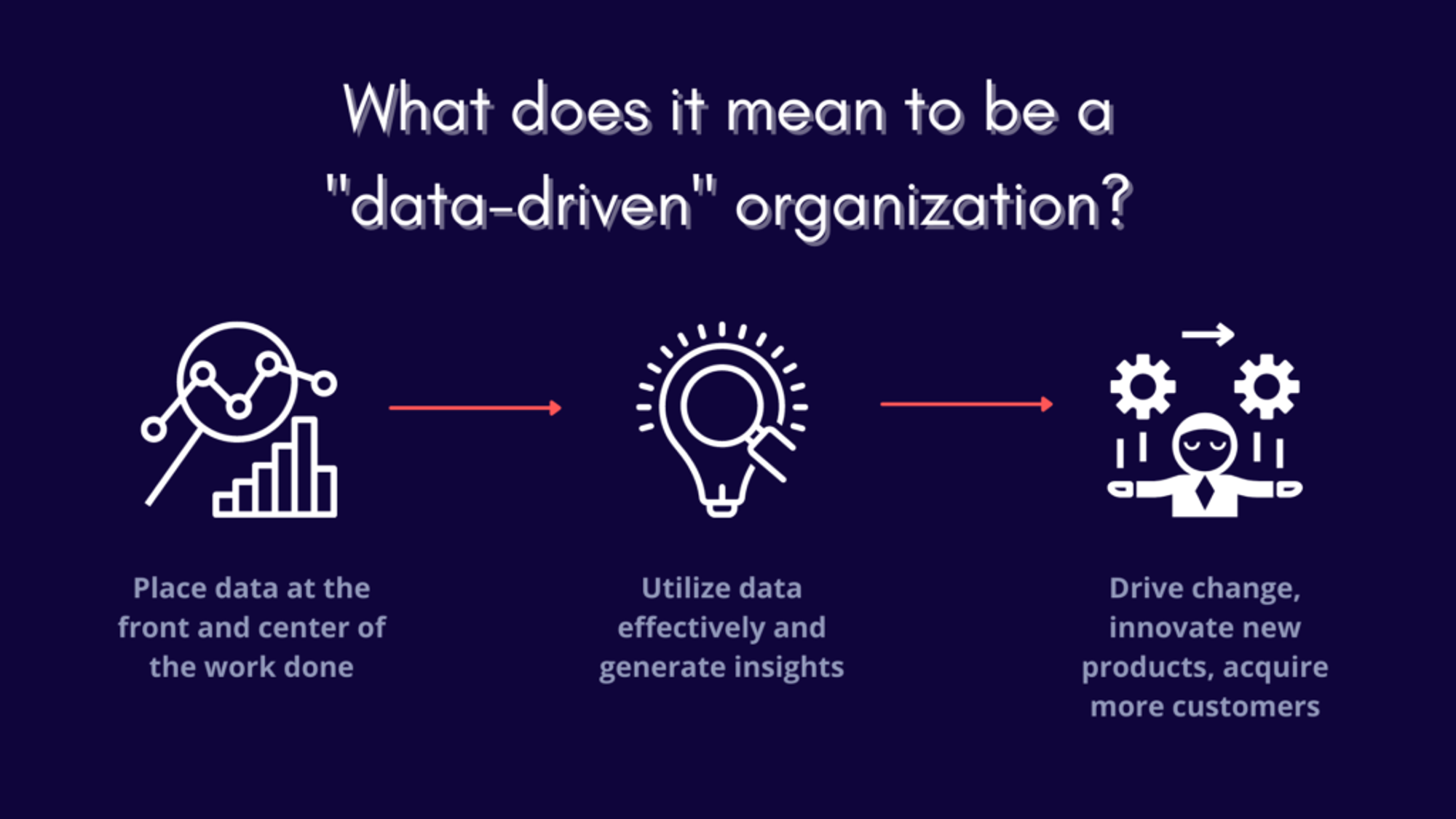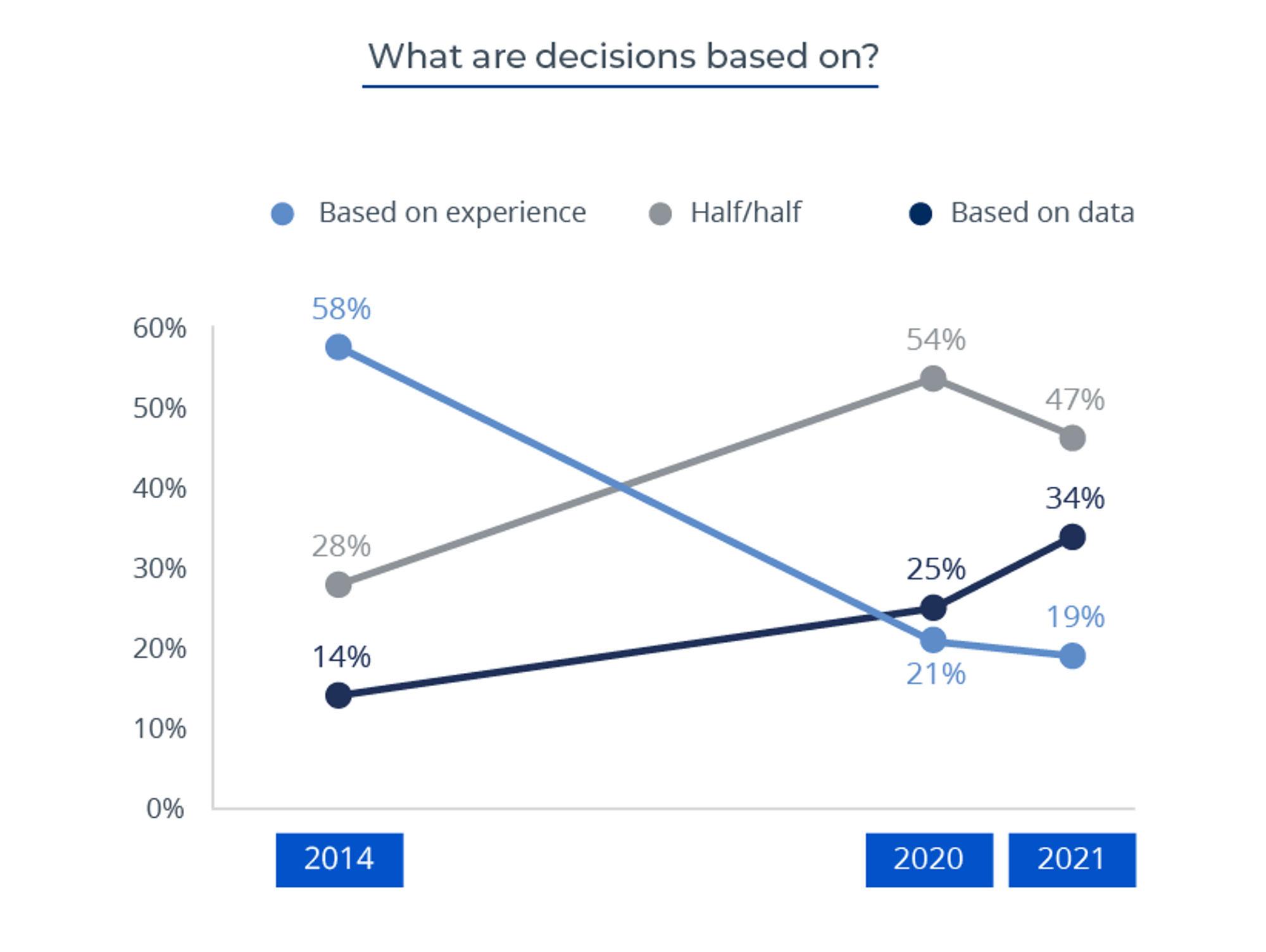What is data culture?


Did you know we're in the middle of a transformation in today's digital world? The volume of data produced continues to grow, ensuring it plays a vital role in business operations. With data playing such an important role for organizations, adopting a healthy data culture is essential. Since data culture is not a passing trend and is also crucial to the core of what GoodData delivers and believes in, we’ve decided to dive deep into defining what data culture is and why it matters.
What is data culture?
While data culture doesn't have a definitive definition, we define it as "the behaviors, beliefs, and practices around data to make data-informed and data-driven decisions." The foundations of data culture start with your organization's value system and data strategy. Gartner defines data strategy as “a highly dynamic process employed to support the acquisition, organization, analysis, and delivery of data in support of business objectives.” In contrast, the culture around data comes together with data talent, data literacy, and data tools.

Image source: The Data-Driven Organization: What It Means to Be One & Why It Matters
Why does data culture matter?
One of the main challenges for modern organizations is not having a data culture. The current business environment requires a data-centric approach to stay competitive and effective. If you're evaluating your current culture around data or considering establishing a data culture, here are four key benefits to consider:
1. Agile and Effective Decision-making
The competitive market environment requires making better decisions faster than ever before. Establishing a strong data culture enables a quick, efficient, and highly informed decision-making process. How does it work? An essential part of the process starts with data collection. From here, data processing and data visualization are necessary for analysis. After the analysis is ready, you can craft an educated projection of future trends, understand the current state of things, or adjust plans to accommodate the data findings. For instance, analysis of past information becomes an objective pillar when discussing the company strategy.
By adopting a data culture, you'll support data literacy in your company. Data literate people know how to read and work with data, analyze data, and argue with data. Through this, you and your organization can avoid relying on just gut-instinct decision making and support logical and data-informed decision making.
2. Data Transparency
Organizations with a strong data culture ensure data transparency. They adopt a robust data tool and set up KPI dashboards, tracking against OKRs or SMART goals, to measure the company's performance. The responsible team members and subject experts can track the company's progress against the business objectives and goals by reviewing how data is being used in various departments and validating decisions and assumptions. In addition to this, each department can also make its own data analytics; for example, the sales team can observe preferences and behavior in the market through their own analytics and data review.
3. Alignment and Communication
Applying effective decisions and strategies requires discussion and alignment across the company. Employees with access to data analysis are more likely to bring their distinctive perspectives, discuss the problem and develop a unique solution. Sharing data in a data-driven culture leads to sharing opinions, understanding, and therefore creating a shared purpose. Aligning people across the entire organization motivates them to bring forth new ideas, as they are all aligned on a common goal or shared purpose.
4. Innovation
Data analysis identifies not only trends and risks but also gaps. Organizations with strong data cultures are more likely to use this information as an opportunity to modernize the organization and implement fundamental changes, system initiatives, and innovations. Successful innovation leans on logic, data, and facts to make decisions.

Image source: BARC Data Culture Survey 2022
Do data-driven companies really show better results? BARC Data Culture Survey 2022 argues that adopting data culture helps companies reduce costs and improve internal processes. According to Forrester, data-focused organizations are almost three times more likely to achieve double-digit growth. McKinsey report 2022 says that companies applying data-driven sales growth provide an EBITDA (=Earnings before Interest, Taxes, Depreciation, and Amortization) increase of up to 25 %.
Looking to build a strong data culture?
Considering the data shown above, data culture has a significant impact on business performance. When adopting a data-driven culture, you can use all the insights your data has to offer. However, building a data culture takes time due to changing and adjusting established processes. If you want to learn more, check out our follow-up article on how to build and maintain a strong data culture.
Experience GoodData in Action
Discover how our platform brings data, analytics, and AI together — through interactive product walkthroughs.
Explore product tours

